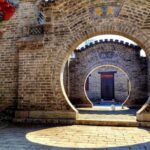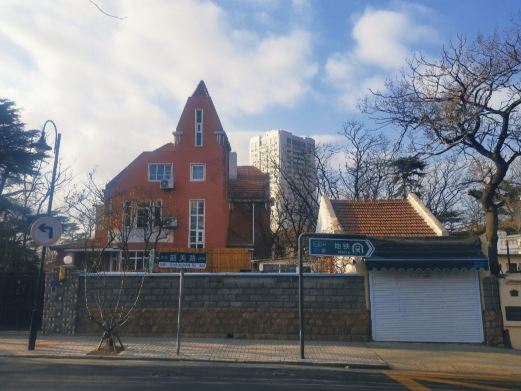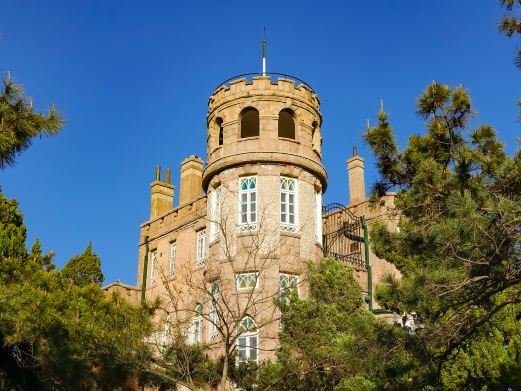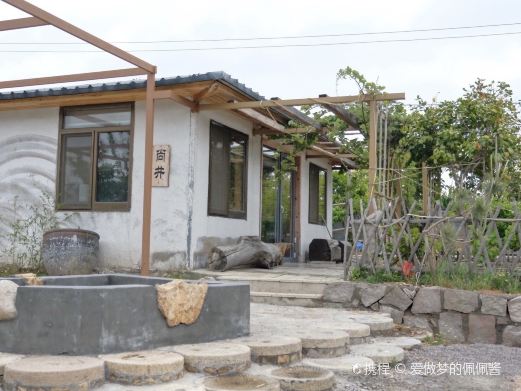Ma’s Manor (Former Command Post of Liu-Deng Army) Introduction
Ma’s Manor, also known as the former command post of the Liu-Deng Army, is located in Xijiang Village, Binjiang Community, Shuiyao Town, Yindu District, Anyang City. It was the former residence of Ma Piaoyao, a top-ranking official in the late Qing Dynasty, who held positions such as the Minister of War and the Deputy Censor-in-Chief of the Metropolitan Censorate, as well as the Governor of Guangxi and Guangdong.
Ma’s Manor (Former Command Post of Liu-Deng Army) is a national key cultural relics protection unit, a national 4A-level tourist attraction, a national classic red tourism scenic spot, a Henan Province Party history education base, a Henan Province integrity education base, and a Henan Province research and study demonstration base.
I. Profound Traditional Culture and Excellent Family Precepts
Ma’s Manor contains profound traditional culture, including poetry, couplets, biographies, and memorials, which not only cover the cultivation of self-cultivation and family management but also embrace the mind of governing the country and the world. It gathers the strengths of various schools and integrates the essence of various disciplines, which can be considered an encyclopedia. The profound culture is particularly known for the Ma family precepts, which emphasize passing on poetry and books, farming and reading to continue the family line, and strict family style and precepts, making the descendants of the Ma family achieve remarkable results and make significant contributions. The Ma family’s century-old family precepts are still excellent family precepts worth recommending and learning from. In 2016, the Ma family’s rules and precepts were listed on the Central Commission for Discipline Inspection’s website as excellent family precepts.
II. Promoting Fine Revolutionary Spirit and Inheriting Excellent Revolutionary Tradition
According to the ‘Chronicle of the Southern Expedition of the Liu-Deng Army’, on the first day of the calendar: June 3, 1947, the Liu-Deng Army entered Xijiang Village, Anyang County, and the Central Military Commission of the Communist Party of China ordered the main force of the Shanxi-Hebei-Shandong-Henan Field Army to actively prepare to break through the Yellow River defense line at the end of June and advance into the Central Plains. The political department of the field army issued the ‘Outline of the Current Situation and Tasks’ in preparation for the strategic offensive. On June 5th, it was stationed in Jiang Village. The Shanxi-Hebei-Shandong-Henan Field Army issued the ‘Tactical Guidance for Crossing the River in Front of the Enemy’, and the central breakthrough in strategy was imminent. On June 22nd, Liu-Deng, stationed in Jiang Village, issued the basic order to cross the Yellow River and carry out the Southwest Shandong Campaign. On June 23rd, the field army command post led the main force to move from the Anyang area to Southwest Shandong.
The Southward Expedition of Liu Bocheng and Deng Xiaoping started from here. Important strategic deployments and military decisions were conveyed here. The bugle for advancing into the Dabie Mountains was sounded from here.
III. Couplets and horizontal plaques highlight the culture of clean governance. In the central main hall of Ma’s Manor, there is a horizontal plaque hanging that reads ‘Model for All Officials’. Ma Piyao served as an official for more than thirty years, and spent more than twenty years just in Shanxi. When he served as the magistrate of Jiezhou in Shanxi, a great drought that had not been seen in decades occurred.
Historically known as the Dingwu Famine. The situation in Jiezhou under Ma Piyao’s jurisdiction was particularly serious. The common people had already started eating tree bark and grass roots. After taking office, Ma Piyao immediately borrowed grain from merchants and distributed it door-to-door to the common people, saving them from the suffering of displacement. The common people respected him and called him ‘Lord Ma’. When Emperor Guangxu heard of his deeds, he praised him, saying, ‘Loyal to the court and truly loving the people. He can be called a model for all officials in Shanxi Province.’ and personally inscribed the horizontal plaque of ‘Model for All Officials’. How did he demand of himself throughout his life as an official? There is a couplet hanging on the east side of the living room that reads ‘I ask for nothing and show no favoritism. Here it is empty and plain. According to national laws and heavenly principles, why do you need to be devious?’. This is a couplet hanging outside the county government office of Pinglu County, Shanxi Province. It is the location of Ma Piyao’s first official position. In his subsequent official careers, he would always carry this couplet and hang it in the living room to tell visitors that he does not love money nor show favoritism. He acts according to national laws and heavenly principles. The entire manor is reasonably designed, with a strict layout, clear priorities, left-right symmetry, lower in the front and higher in the back. It is well-proportioned and magnificent. It is known as ‘the only large feudal bureaucratic mansion in the Central Plains’.
Opening hours: Open all year round from 08:30 to 17:30; Open all year round from 08:30 to 17:00.

Preferential policies: Children: Free for those under 1.4 meters (inclusive).

The elderly: Free for those aged 60 and above (inclusive) with valid certificates.









